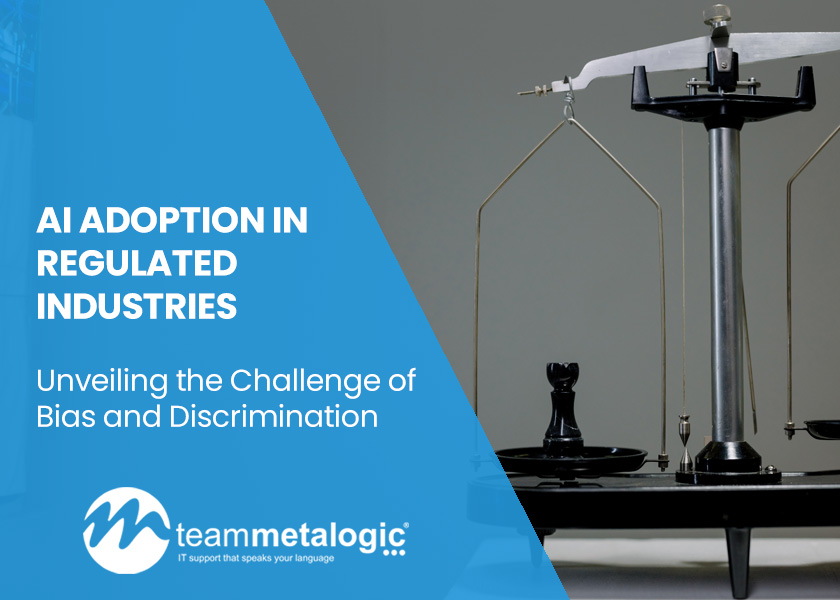As artificial intelligence (AI) continues to permeate regulated industries in the UK, it brings with it the promise of enhanced efficiency and improved decision-making. However, the adoption of AI systems also presents challenges, particularly when it comes to bias and discrimination. In this article, we will explore the impact of AI on regulated industries, the potential for bias, and the crucial need for proactive measures to address and mitigate these issues. By examining the role of AI in promoting fairness and inclusivity, we can navigate the path towards responsible AI adoption in regulated sectors.
The Role of AI in Regulated Industries
Across various sectors such as finance, healthcare, and legal services, AI is revolutionising operations and transforming the way tasks are performed. In finance, AI algorithms analyse vast amounts of data to identify patterns and detect fraudulent activities with greater accuracy. In healthcare, AI aids in diagnostics, treatment planning, and patient care, leading to better outcomes. In the legal sector, AI streamlines document review, automates tedious tasks, and assists in legal research, improving efficiency and effectiveness.
The Challenge of Bias in AI Systems
AI systems are only as unbiased as the data on which they are trained. If the training data includes biassed information or reflects societal prejudices, the AI system may inadvertently perpetuate and amplify these biases. This can lead to discriminatory outcomes, reinforcing existing inequalities and hindering the progress towards fairness and inclusivity. The challenge lies in recognizing and addressing these biases to ensure that AI systems promote equality rather than perpetuating discrimination.
Addressing Bias and Discrimination in AI Systems
Diverse and Representative Training Data: To minimise bias, it is crucial to ensure that the training data used to develop AI models is diverse and representative of the population it intends to serve. By incorporating data from different demographic groups and avoiding underrepresented groups’ exclusion, AI systems can be more accurate and equitable in their outcomes.
Continuous Monitoring and Evaluation: Regulated industries must implement mechanisms to monitor and evaluate AI systems throughout their lifecycle. This includes assessing the algorithms for potential bias and discriminatory outcomes, identifying and rectifying any issues promptly.
Ethical AI Frameworks: Developing and adhering to ethical AI frameworks is essential. These frameworks should encompass guidelines and principles that prioritise fairness, transparency, and accountability. By embedding ethical considerations into the development and deployment of AI systems, organisations can mitigate the risks of bias and discrimination.
Explainable AI: The ability to interpret and understand AI decisions is crucial in regulated industries. Implementing explainable AI methodologies allows organisations to uncover and address potential biases effectively. This transparency promotes trust and accountability while enabling stakeholders to evaluate and challenge AI-generated outcomes.
The Role of Regulation and Governance
Regulators and governing bodies play a significant role in ensuring responsible AI adoption in regulated industries. Establishing clear guidelines and regulations specific to AI implementation can help organisations navigate the complex landscape. Regulators should encourage transparency, accountability, and fairness in AI systems while setting standards for data protection and privacy.
The Partnership between Regulated Industries and Managed IT Service Providers
Managed IT service providers, like Team Metalogic, play a vital role in assisting regulated industries in their AI adoption journey. By partnering with experienced providers, organisations can benefit from their expertise in addressing bias and discrimination concerns. These providers can offer guidance in selecting AI models and algorithms that prioritise fairness and inclusivity. They can also assist in implementing robust monitoring mechanisms and ethical frameworks to ensure ongoing compliance with regulations and industry standards.
What next?
AI holds tremendous potential for regulated industries in the UK, offering efficiency, improved decision-making, and transformative solutions. However, the issue of bias and discrimination poses challenges that must be addressed proactively. By emphasising diverse and representative training data, continuous monitoring and evaluation, ethical frameworks, and explainable AI, organisations can strive for fair and inclusive AI systems. Collaboration between regulated industries and managed IT service providers, such as Team Metalogic, fosters responsible AI adoption and helps create a future where AI promotes equality and eliminates discrimination in regulated sectors. With a commitment to mitigating bias and prioritising fairness, the regulated industries in the UK can harness the power of AI while ensuring inclusivity and compliance with regulatory standards.
Links
Artificial Intelligence Bias and Discrimination: Will We Pull the Arc of the Moral Universe Towards Justice? https://heinonline.org/HOL/LandingPage?handle=hein.journals/jintcl8&div=24&id=&page=
Exploring Bias Against Women in Artificial Intelligence https://www.duo.uio.no/bitstream/handle/10852/88551/All_Chapters_Master-s_thesis-Gender_Bias_in_AI-ver–9.pdf?sequence=1&isAllowed=y

